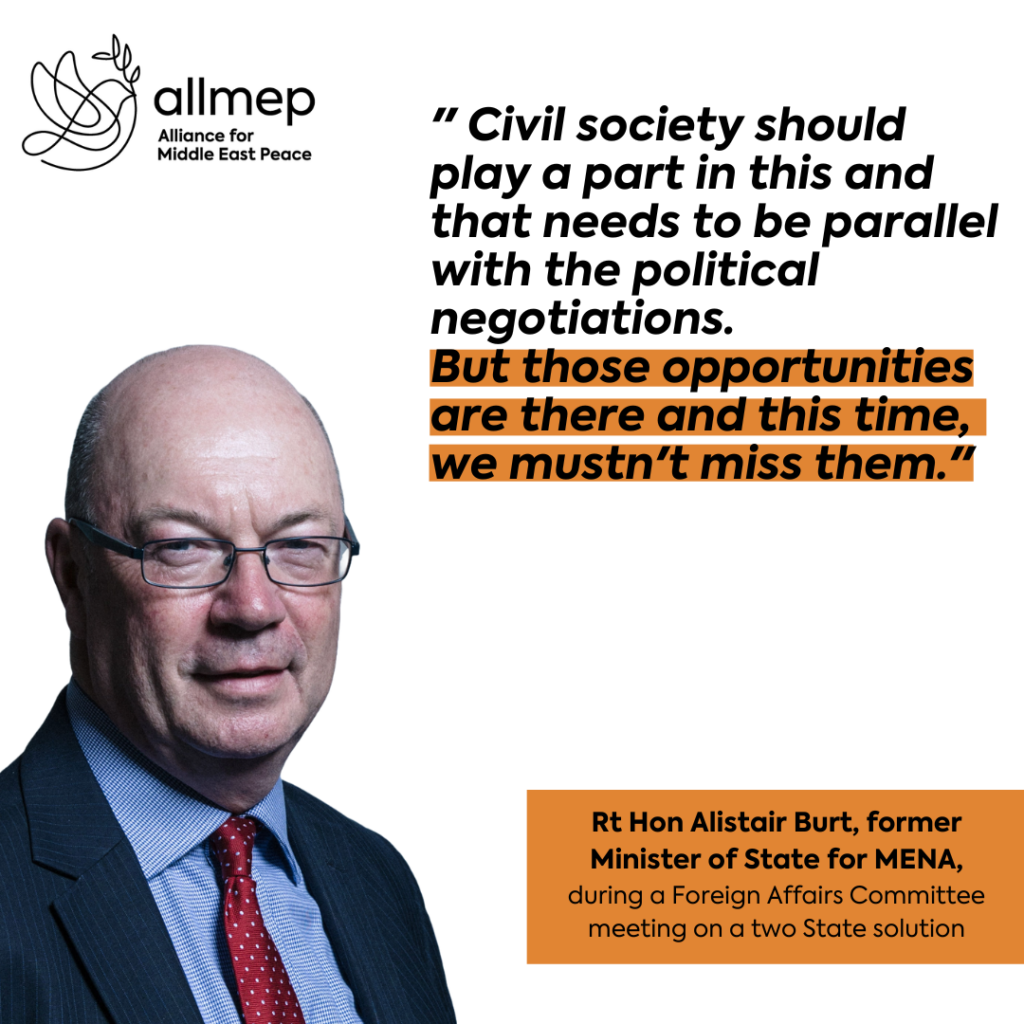UK Foreign Affairs Committee Session on the UK’s engagement with the MENA discusses the future of a two-state solution
Recently, in the UK Parliament, the Foreign Affairs Committee held a discussion on the future of a two-state solution for Israel and Palestine. Experts, including The Rt Hon Alistair Burt, former Minister of State for the Middle East, Gershon Baskin, co-Chairman of the Israel/Palestine Center for Research and Information, and Miri Eisin, Managing Director of the International Institute for Counter-Terrorism, highlighted the pivotal role that encounters between Israelis and Palestinians play in peacebuilding and conflict resolution.
These experts underscored the urgency for civil society to resume dialogue centered around their shared future. As Miri Eisin aptly put it, “both [Israelis and Palestinians] want to live within the land, and that common ground means that we need to reach out and talk to each other.” This call for dialogue aligns with the tireless efforts of grassroots initiatives that have recognized and actively worked for years to foster such discussion and understanding among communities in the region.
Alistair Burt further highlighted the importance of grassroots initiatives in promoting peace, particularly the effectiveness of communal efforts within Israel in diffusing tensions between Arabs and Jews since October 7th. In an effort to promote such initiatives for future peacebuilding, Alistair specifically encouraged the Foreign Affairs Committee to support initiatives such as those supported by ALLMEP.
When thinking about the end of this conflict and planning for the future, Gershon Baskin urged the Committee to imagine “a two state solution which is built on bridges and cooperations and not two states which were built on fences and walls”. Gershon emphasized the importance of shared research, trade, and education to foster prosperity, trust, and enduring peace between Israelis and Palestinians. In this vision, civil society peacebuilding organizations assume a monumental role in helping build these bridges and facilitate interactions.
Begin Action Now for Lasting Peace
The urgency to initiate these efforts was a unanimous call. Alistair Burt asserted that while a ceasefire remains a priority, engaging with civil society and planning for the post-conflict scenario in Gaza must be “parallel with political negotiations”. Grassroots initiatives are essential for rebuilding trust and for peace to take root and flourish.
The UK was recognized as a pivotal player for supporting civil society organizations. Alistair asserted that the UK should play a convening role in bringing voices together, and Miri stated that the international community should also protect any future dialogue between Israelis and Palestinians by sidelining spoilers and strengthening those who strive for resolution.
Lastly, the experts echoed a crucial plea: to avoid the pitfalls of past failed peace efforts that excluded the voices of civil society. Alistair Burt emphatically stated, “those opportunities are there, and this time, we mustn’t miss them“. It is in building these bridges for peace that the hope for a two-state solution in Israel and Palestine finds its most promising path forward.








